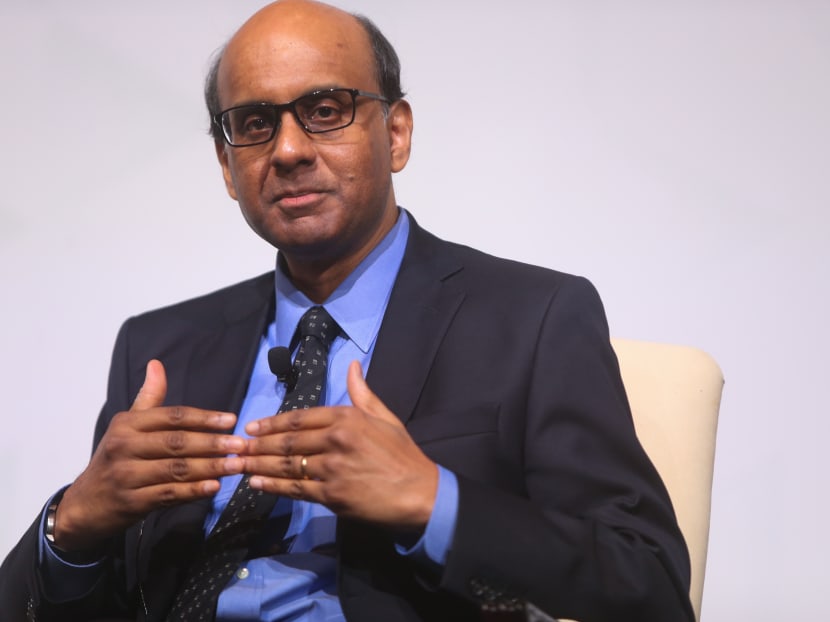Equity vital in resolving social challenges: Tharman
SINGAPORE — As countries strive towards inclusive growth and social equity, policies must not undermine the sense of personal responsibility or place disproportionate burden on the young to support older generations.
SINGAPORE — As countries strive towards inclusive growth and social equity, policies must not undermine the sense of personal responsibility or place disproportionate burden on the young to support older generations.
These two issues are only some of the common challenges across the world, said Deputy Prime Minister and Finance Minister Tharman Shanmugaratnam yesterday (July 7) at the 19th Symposium of the International Consortium for Social Development at SIM University.
In his speech at the biennial event, held in Singapore for the first time, he observed that the world seems to be at a transition point, in search of more sustainable models of inclusive growth. “In other words, economic growth that is accompanied by social equity — social equity in the sense of social mobility, reduced inequalities of incomes and wealth; social equity in its fullest sense,” said the minister.
While the main focus has usually been on wealth distribution within today’s generation, Mr Tharman said it is also crucial to ensure equity between generations. “We now face the prospect of younger generations in a whole range of advanced countries that have to pay the increased burdens of benefits that are promised to older generations,” he said.
“In other words, the young will have to pay more than older generations have paid, but for benefits the young themselves will not enjoy.” The crux of this challenge is the promises made on pensions and healthcare that have yet to be financed, he added.
As Singapore moves towards more collective responsibility, redistribution should also be done in a way that reinforces personal or family responsibility, Mr Tharman stressed.
“That compact between what we are responsible for collectively and as individuals and families ... can be achieved. It runs through all our social policies ... (We have to) reward responsibilities, throughout life, rather than substitute for personal or family responsibility,” he said.
Social norms and values are another important factor, he noted, as these evolve in response to policies and can lead to unintended societal changes that will hinder social equity.
Taking Sweden as an example, Mr Tharman cited surveys in which an increasing proportion of respondents had found it acceptable to call in sick for work even if they were healthy, or to claim government benefits to which they were not entitled.
“It’s an example of how even the most industrious societies have seen quiet changes, decade after decade, in ways that were quite unintended by the founders of social democracy,” he said. Closer to home, Asian countries such as Singapore, South Korea and Japan face similar problems of low fertility rates.
How these behaviours, norms and values came about and whether they can be influenced by policy are among the questions that must be studied more closely, he said.
Neighbourhoods and places are another critical area for governments to shape their social policies around, said Mr Tharman, adding that housing and education are at the foundation of Singapore’s social policies.
The Republic’s housing policies allow integration and interaction among people from different backgrounds, and it is this that counts and breeds a sense of comfort when people live together, he said.
In education, the core challenge is in balancing two vital elements: “The sameness of experience that shapes the spirit of fellowship” as children grow up and the extent to which education has to be customised to cater to “different needs, different learning styles, different pace of learning that different students need”, said Mr Tharman.







